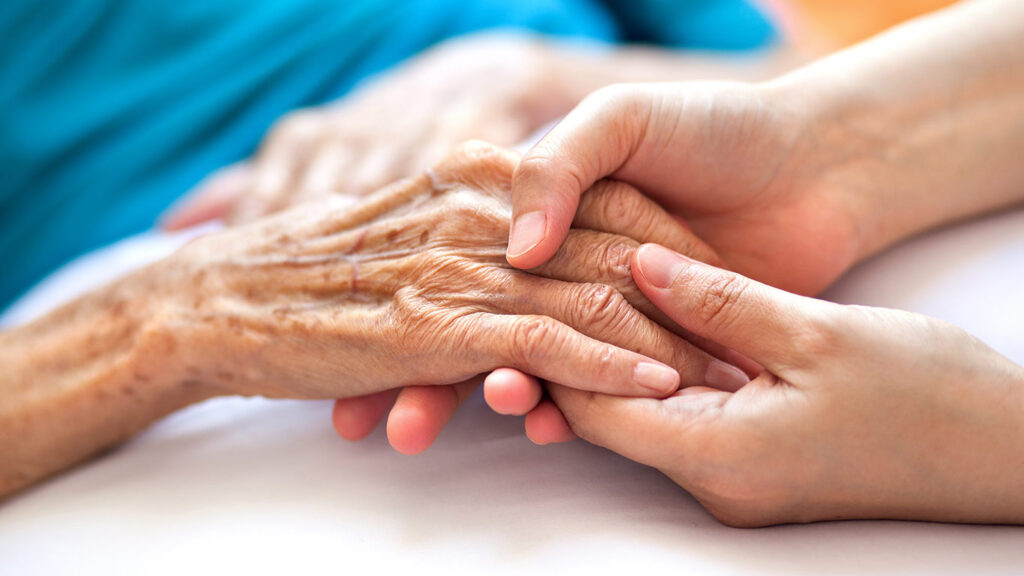The tragic suicide of Bollywood actor Malaika Arora’s father, Anil Mehta, after he jumped from a building in Bandra, Mumbai, has shocked the film industry and the public alike. This heart-wrenching incident not only sheds light on the devastating emotional toll that depression and isolation can have on the elderly, but it also brings attention to the broader issue of mental health challenges faced by seniors in India and worldwide. With the rise in suicide rates among the elderly population, it is essential to explore the complexities surrounding old-age depression, its causes, and preventive strategies.
The Incident: A Life Lost Too Soon
Anil Mehta, aged 65, allegedly jumped from the terrace of his apartment building in Bandra at around 9 a.m. on a Wednesday morning. Malaika Arora, who was in Pune at the time of the incident, rushed back to Mumbai after hearing the tragic news. Her ex-husband, Arbaaz Khan, along with her family members and other Bollywood personalities, arrived at her residence to offer their condolences.
Police officials stated that the investigation is ongoing, and they are yet to determine the reasons behind Mehta’s suicide. While his family and friends remain in deep shock, the public mourning has put a spotlight on the growing cases of elderly suicide, particularly in urban areas like Mumbai.
Anil Mehta’s death has once again brought attention to the emotional and psychological struggles that many elderly individuals face. Loneliness, social isolation, feelings of irrelevance, and physical pain from age-related illnesses are often exacerbated in old age, leading many to feel trapped and helpless.
Understanding Elderly Suicide in India
Elderly suicide is an increasingly alarming issue in India. According to a report by the National Crime Records Bureau (NCRB), the suicide rate among individuals over the age of 60 has been steadily increasing over the past decade. While much attention is given to youth suicides, it is essential to recognize that elderly individuals are equally, if not more, vulnerable to mental health crises.
Key Factors Contributing to Elderly Suicides:
- Loneliness and Social Isolation: One of the primary causes of elderly depression is the overwhelming sense of loneliness. Many elderly people lose their life partners, close friends, and family members as they age, leaving them with little emotional support. In a fast-paced society, where children often move away for work or other opportunities, many elderly individuals find themselves living alone. The absence of companionship can lead to feelings of abandonment and isolation, triggering deep depression.
- Post-Retirement Void: After retirement, many individuals find themselves grappling with a loss of identity and purpose. Anil Mehta, like many others, may have felt a sense of emptiness after retiring from his professional life. Being active and contributing to society becomes ingrained in a person’s self-worth, and once this role is removed, they often struggle to redefine their purpose. Without adequate support systems, this void can turn into a significant mental health challenge.
- Health-Related Issues: As people age, they inevitably experience a decline in physical health. Chronic illnesses, mobility issues, and cognitive decline can make elderly individuals feel burdensome to their family and society. Many elders suffer in silence, reluctant to express their physical and emotional pain. In some cases, as Dr. Aarti Anand from Sir Ganga Ram Hospital notes, physical suffering may become unbearable, pushing individuals toward suicidal thoughts.
- Financial Dependency: Financial insecurity or dependence on family members can be a significant source of stress for elderly individuals. In India, where many people are financially dependent on their children post-retirement, the fear of becoming a burden can lead to feelings of worthlessness. With changing family structures, the rise of nuclear families, and the growing cost of living, many seniors may find themselves financially abandoned, contributing to their sense of helplessness.
- Lack of Mental Health Awareness: Mental health issues in the elderly are often overlooked or misunderstood. While younger generations might openly discuss their emotional struggles, the elderly tend to mask their feelings. This can stem from the stigma surrounding mental health, especially among older generations, who may be less willing to seek help or admit to feeling depressed. As Dr. Shailesh Jha of Indraprastha Apollo Sarthak Mental Health Services points out, untreated mental health issues in old age are rampant, often exacerbated by age-related challenges.
The Signs and Symptoms of Elderly Depression

Recognizing the signs of depression in elderly individuals is crucial for preventing tragedies like Anil Mehta’s suicide. Unfortunately, many seniors do not openly express their struggles, making it challenging for family members to identify the problem.
Common signs of elderly depression include:
- Withdrawal from social interactions: Elderly individuals may avoid family gatherings, social events, or even routine interactions with friends and loved ones. This withdrawal is often a sign of feeling overwhelmed or hopeless.
- Changes in sleep patterns: Sleep disturbances, such as insomnia or excessive sleeping, can be early indicators of depression.
- Loss of appetite: A sudden decrease in appetite or weight loss is often a physical manifestation of mental health issues.
- Lethargy and fatigue: A lack of energy and general disinterest in daily activities may indicate emotional distress.
- Expressions of hopelessness or suicidal thoughts: Statements like “I think my time is up” or “There’s no point anymore” should never be taken lightly.
As family members or caregivers, it is crucial to listen carefully and observe these subtle changes in behavior. In many cases, elderly individuals may not directly express their emotional struggles but will show signs that indicate they are in distress.
Preventive Strategies: Addressing Elderly Depression
Mental health professionals emphasize the importance of a strong support system for the elderly. Preventive measures can be taken to ensure seniors receive the emotional and psychological care they need to live a fulfilling life post-retirement.
- Open Communication with Family: Regular communication with family members is vital for the emotional well-being of elderly individuals. However, it is essential that these conversations are meaningful and attentive. Simply asking about one’s day is not enough. Families should engage in deep, empathetic conversations to understand how their elderly relatives feel and whether they need emotional support.
- Promoting Socialization: Encouraging elderly individuals to stay socially active is critical in combating isolation. Community support groups, senior clubs, and hobby groups can provide a sense of belonging and purpose. These spaces allow elderly individuals to share their experiences and maintain social connections.
- Fostering a Post-Retirement Routine: A well-structured routine can significantly improve the mental health of retirees. Engaging in activities like gardening, art, or exercise can give elderly individuals a sense of achievement and fulfillment. Setting daily or weekly goals, even if they are small, can provide structure and purpose.
- Professional Mental Health Support: Counseling and therapy are essential tools in treating depression, especially in older adults. For those who are more resistant to talking about their feelings, mental health professionals can create safe spaces where they feel comfortable opening up. In cases where depression is severe, medication may be required to break the cycle of negative thoughts and behaviors.
- Promoting Financial Independence: Providing elderly individuals with financial security can alleviate the stress and anxiety associated with financial dependence. Retirement planning, even for those who are not financially well-off, can ensure a sense of independence and control over one’s future.
Moving Forward: A Call for Greater Awareness

The tragic death of Anil Mehta is a stark reminder of the mental health crisis that affects many elderly individuals. It is essential to foster a culture of awareness and openness regarding mental health issues, especially for seniors, who often face these challenges in silence.
The Indian government, healthcare providers, and community organizations must work together to create better mental health care facilities, support systems, and awareness campaigns that cater to the unique needs of the elderly population. Society must take a more active role in addressing these challenges, recognizing that the well-being of our elderly is not just a family issue but a societal one.
By acknowledging and addressing the root causes of elderly depression—be it loneliness, health problems, or financial insecurity—we can work toward reducing the number of elderly suicides and ensuring that seniors live their final years with dignity, purpose, and joy.
Conclusion: A Tragedy That Calls for Reflection
Anil Mehta’s death is a heartbreaking loss for Malaika Arora and her family, but it also serves as a poignant reminder for society to pay closer attention to the mental health of the elderly. The suicide of an elderly person is not just a personal loss for their family—it reflects the broader mental health crisis that many seniors face.
With greater awareness, empathy, and support, we can prevent such tragedies from occurring and ensure that elderly individuals have the emotional and psychological resources they need to live their final years with peace and contentment.





